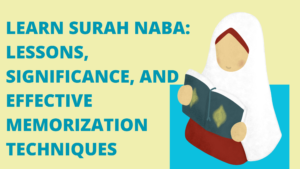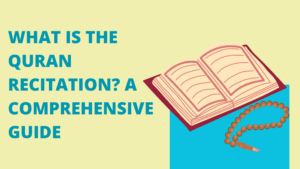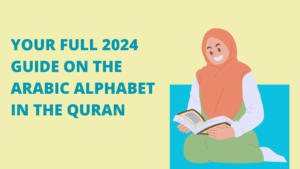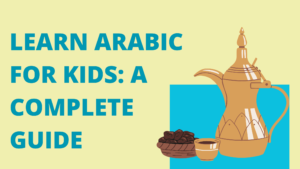Juz Amma is the thirtieth and final part of the Quran. Juz Amma Surahs comprise a collection of 37 shorter chapters (Surahs) from the Quran, starting from Surah An-Naba (Chapter 78) and ending with Surah An-Nas (Chapter 114). These Surahs are generally shorter in length compared to those found in other sections of the Quran.
Juz Amma is often studied for its accessibility and is commonly used as a starting point for beginners learning to recite and memorize the Quran due to its shorter Surahs. It covers various themes, including the belief in the Hereafter, accountability, resurrection, and the power and mercy of Allah.
- Order in the Quran: 30
- Number of Surahs: 37
- Number of Verses: 564
- Number of Words: 2423
- Text of [Juz’ Amma](جزء عم).
Table of Contents
What is Juz Amma?
Juz’ Amma (Arabic: جزء عمّ) is named so because it begins with Surah Al-Naba, which starts with the word “Amma” (عَمَّ). Juz’ Amma contains 37 Surahs, which are short. The main theme of these Surahs and the Juz’ in general is that the Hereafter belongs to Allah Almighty.
O mankind, be connected to your Lord, obedient to Allah Almighty; because everything is in the hands of Allah. This Juz’ reminds of the Hereafter, resurrection, meeting Allah Almighty, and His power in the universe. All of this is presented in short, impactful, and delicate Surahs.
Juz’ Amma is observed that this Juz’ contains Surah Al-‘Alaq and Surah An-Nasr. The former signifies the commencement of the prophetic mission with the verse “Read in the name of your Lord who created.” The latter, Surah An-Nasr, signifies the end of the prophetic mission and the passing of the Prophet.
How Many Surahs In Juz Amma?
Juz’ Amma contains a total of 37 surahs (chapters). These surahs are generally shorter in length compared to those found in other sections of the Quran, making Juz’ Amma a common starting point for those who are learning to recite and memorize the Quran.
Juz Amma Surahs:
Thus, the Surahs of the thirtieth Juz’ of the Quran seem to summarize the objectives mentioned in the previous twenty-nine sections, with reminders of the Hereafter and meeting Allah Almighty.
This serves as a reminder that implementing this methodology is an obligation upon Muslims, and they will be held accountable for it on the Day of Judgment. On that day, people will stand before Allah Almighty for judgment based on their contributions to this religion, their deeds in this worldly life, and how they applied the teachings, legislations, and ethics of this religion in their lives and interactions with others.
Juz Amma Surahs List:
After All The Quran Surahs List, Here is a table listing the surahs in Juz’ Amma with their Arabic names, English names, the number of verses (ayat) in each surah, and whether they are Meccan or Medinan surahs:
| Arabic Name | English Name | Number of Verses | Meccan/Medinan |
|---|---|---|---|
| النبأ | An-Naba | 40 | Meccan |
| النازعات | An-Nazi’at | 46 | Meccan |
| عبس | Abasa | 42 | Meccan |
| التكوير | At-Takwir | 29 | Meccan |
| الإنفطار | Al-Infitar | 19 | Meccan |
| المطففين | Al-Mutaffifin | 36 | Meccan |
| الإنشقاق | Al-Inshiqaq | 25 | Meccan |
| البروج | Al-Buruj | 22 | Meccan |
| الطارق | At-Tariq | 17 | Meccan |
| الأعلى | Al-Ala | 19 | Meccan |
| الغاشية | Al-Ghashiyah | 26 | Meccan |
| الفجر | Al-Fajr | 30 | Meccan |
| البلد | Al-Balad | 20 | Meccan |
| الشمس | Ash-Shams | 15 | Meccan |
| الليل | Al-Lail | 21 | Meccan |
| الضحى | Adh-Dhuha | 11 | Meccan |
| الشرح | Ash-Sharh | 8 | Meccan |
| التين | At-Tin | 8 | Meccan |
| العلق | Al-Alaq | 19 | Meccan |
| القدر | Al-Qadr | 5 | Meccan |
| البينة | Al-Bayyina | 8 | Medinan |
| الزلزلة | Az-Zalzalah | 8 | Medinan |
| العاديات | Al-Adiyat | 11 | Meccan |
| القارعة | Al-Qari’ah | 11 | Meccan |
| التكاثر | At-Takathur | 8 | Meccan |
| العصر | Al-Asr | 3 | Meccan |
| الهمزة | Al-Humazah | 9 | Meccan |
| الفيل | Al-Fil | 5 | Meccan |
| قريش | Quraish | 4 | Meccan |
| الماعون | Al-Ma’un | 7 | Meccan |
| الكوثر | Al-Kawthar | 3 | Meccan |
| الكافرون | Al-Kafirun | 6 | Meccan |
| النصر | An-Nasr | 3 | Medinan |
| المسد | Al-Masad | 5 | Meccan |
| الإخلاص | Al-Ikhlas | 4 | Meccan |
| الفلق | Al-Falaq | 5 | Meccan |
| الناس | An-Nas | 6 | Meccan |
Please note that while most of these surahs are Meccan, there are a few that are Medinan. This classification is based on the period of revelation in Islamic history.
1. Surah An-Naba
Surah An-Naba is a Meccan Surah, named An-Naba because it contains important news about the resurrection, revival, and recompense. The verses provide evidence of Allah’s power in the universe, emphasizing that the One capable of creating this universe can surely resurrect humans after death.
The Surah mentions the resurrection, Hell prepared for the disbelievers, and the various forms of humiliating punishment for the disbelievers and polytheists. In contrast, it describes what Allah Almighty has prepared for the righteous. The Surah concludes by discussing the horrors of the Day of Judgment.
2. Surah An-Nazi’at
Surah An-Nazi’at is A Meccan Surah, its verses talk about the resurrection, its horrors, and the Hour. It also discusses the revelation and the message, which are essential beliefs. The Surah begins by depicting scenes from the Day of Judgment, describing the severe cosmic upheavals and changes in the state of humans and creatures, including the sun, mountains, seas, and skies.
The Surah then transitions to discussing the truth of revelation and the qualities of the messenger receiving it. It concludes by refuting the claims of the polytheists about the Holy Quran, emphasizing that the Quran is a reminder for all of humanity.
3. Surah ‘Abasa
Surah ‘Abasa is A Meccan Surah, its verses discuss the signs of power and monotheism in all creation, the resurrection, and its horrors. The Surah was revealed after the incident with Abdullah ibn Umm Maktum, the blind man whom the Prophet turned away from because he was preoccupied with the leaders of Quraysh, hoping they would embrace Islam.
The Surah emphasizes that the message must be inclusive for both the rich and the poor. The Surah then discusses the ingratitude of humans towards Allah’s blessings and provides evidence of Allah’s power in the universe. It concludes by discussing the horrors of the Day of Judgment.
4. Surah At-Takwir: in juz Amma
Surah At-Takwir is A Meccan Surah whose verses speak about the Resurrection, revelation, and the message. It is among the essentials of faith. It begins by displaying scenes from the Day of Judgment and the severe cosmic upheaval that will take place.
The conditions of humans and other creations, from the sun to the mountains, seas, skies, and others, will change. “When the sun is wrapped up,” these are quick images and scenes that make one’s skin crawl from their magnitude, depicted in a beautiful and precise manner, making the reader feel as if they are witnessing these events due to the detailed description.
The verses then transition to discuss the reality of revelation and the qualities of the messenger receiving it. The Surah concludes with verses that refute the polytheists’ claims about the Holy Quran, stating it’s a reminder for all, but only for those who seek righteousness and guidance, and this is only by the grace and will of Allah.
You Can Learn Quran Online Now With the Best Quran Teachers.
Check online Quran Classes Now For Free
Embark on a transformative journey of Quranic learning with Bayan Al-Quran’s comprehensive online courses. Our platform offers an authentic and immersive experience tailored to learners worldwide.
5. Surah Al-Infitar:
A Meccan Surah, and like Surah At-Takwir, it speaks about the cosmic upheaval on the Day of Judgment. “When the sky breaks apart,” then the verses discuss man’s denial and his disbelief in Allah’s blessings.
This is because humans forget that angels record all their actions, which will be read on the Day of Reckoning. The Surah then describes the state of the righteous and the wicked on that challenging day and their respective fates.
6. Surah Al-Mutaffifin:
Surah Al-Mutaffifin is A Meccan Surah that begins by condemning those who give less in measure and weight, highlighting their punishment in the Hereafter because they don’t fear the afterlife or consider the day they will stand before the Lord for judgment.
In contrast to these cheaters, the verses present the state of the righteous and the bliss they will experience on the Day of Judgment.
The Surah concludes by discussing the stance of the wicked disbelievers who used to mock the believing servants of Allah and how they will be recompensed in the Hereafter.
7. Surah Al-Inshiqaq:
Surah Al-Inshiqaq is A Meccan Surah that, like the previous one in this section, addresses the horrors of the Day of Judgment and some scenes from that challenging day.
“When the sky splits open,” it then talks about the creation of man, who toils for his sustenance, and will be presented with his deeds on the Day of Resurrection. If he has done good, it will be good for him, and if he has done evil, his account will be difficult.
The Surah then transitions to discuss the punishment of the polytheists who denied the great Quran and concludes by reproaching them for their disbelief in Allah, despite the clear signs of His oneness.
8. Surah Al-Burooj:
Surah Al-Burooj is A Meccan Surah, its verses address the story of the People of the Ditch, a tale of sacrificing oneself for belief and faith. The Surah starts by swearing by the sky and its constellations, and the Day of Judgment, emphasizing the destruction of the wrongdoers.
The verses then warn the wicked about their punishment for what they did to the believers. The Surah concludes by recounting the story of the tyrannical Pharaoh and his fate, emphasizing the Quran’s significance and its preservation by Allah.
9. Surah At-Tariq:
Surah At-Tariq is A Meccan Surah, its verses revolve around the belief in resurrection and present evidence of Allah’s power in His creation and the universe.
The Surah starts by swearing by the sky and the morning star. It then discusses the creation of man from a drop of fluid and the growth of plants from rainwater, emphasizing the singularity of the Creator.
The Surah concludes by discussing the magnificent Quran, the miracle of our noble Prophet, and its truthfulness, emphasizing that the disbelievers will face consequences in due time.
10. Surah Al-A’la:
A Meccan Surah that addresses several topics: some attributes of Allah, the Exalted, and the evidences of His power and oneness. “Exalt the name of your Lord, the Most High, Who created and proportioned, Who destined and [then] guided, Who brought forth the pasture.”
It also discusses revelation and the Quran that was sent down to the Prophet and the ease of its preservation for him. “We will make you recite, [O Muhammad], and you will not forget, Except what Allah should will. Indeed, He knows what is declared and what is hidden.”
The Surah addresses the topic of good advice that benefits those with living hearts and the people of faith and happiness. “So remind, if the reminder should benefit; He who fears [Allah] will be reminded. But the wretched one will avoid it.”
The Surah concludes by stating the success of those who purify themselves from sins and wrongdoings and purify themselves with righteous deeds, and that the Hereafter is more lasting for man than the fleeting worldly life. “Successful is he who purifies himself, And mentions the name of his Lord and prays.”
11. Surah Al-Ghashiya:
A Meccan Surah that addresses two main topics: The first is the Resurrection and its horrors, the bliss that the believer will experience “Faces, that Day, will show pleasure” and the punishment in contrast to what the disbeliever will face from torment and affliction.
“Faces, that Day, will be humbled.” The second topic presents some of the evidences and proofs of the oneness of Allah, the Exalted, and His power in the universe and the wonderful creation. “Do they not look at the camels – how they are created? And at the sky – how it is raised? And at the mountains – how they are erected?
And at the earth – how it is spread out?” After presenting the evidences of power and monotheism, Allah commands His Messenger to remind the deniers and advise them because he cannot compel them to believe. “So remind; you are only a reminder. You are not over them a controller.”
These people will be punished by Allah, who will recompense them for their disbelief and denial. “Indeed, to Us is their return; Then indeed, upon Us is their account.”
12. Surah Al-Fajr:
A Meccan Surah that mentions the stories of some of the previous nations who denied the messengers of Allah, such as the people of ‘Ad, Thamud, and the people of Pharaoh, and shows the punishment they faced due to their tyranny. “Did you not see how your Lord dealt with ‘Ad?”
The verses then explain Allah’s way in testing His servants with good and evil, wealth and poverty. “As for man, when his Lord tests him by honoring him and blessing him, he says, ‘My Lord has honored me.’ But when He tests him by restricting his provision, he says, ‘My Lord has humiliated me.'”
The Surah highlights the human nature of loving wealth and not honoring the orphan, not urging the feeding of the poor, and consuming inheritance with devouring greed. It then transitions to discuss the horrors of the Day of Resurrection and the division of people into the wretched in Hell or the blessed in Paradise. “No! When the earth has been leveled – pounded and crushed, And your Lord has come and the angels, rank upon rank.”
Join our vibrant community dedicated to perfecting Quranic recitation. Build a profound connection with the divine words of the Quran and enrich your spiritual journey.
Check online Quran Classes Now For Free
13. Surah Al-Balad:
A Meccan Surah that begins by swearing by the sacred city, the city of the Messenger. It hints that the disbelievers harmed the Messenger of Allah in Allah’s sacred city, which should have been safe. This is a reprimand for them for violating the sanctity of the place, which is a major sin in the sight of Allah.
“I swear by this city, Makkah – And you, [O Muhammad], are free of restriction in this city.” The verses then discuss the human endeavor and struggle in this life and its end to bliss or hell. Allah swears that human effort is diverse and varied. “Indeed, We have created man into hardship.”
He then clarifies the paths of happiness: “As for he who gives and fears Allah And believes in the best [reward],” and the paths of wretchedness: “But as for he who withholds and considers himself free of need And denies the best [reward].” The verses warn that wealth will not benefit man when he falls [into Hell].
The Surah concludes with a model of the righteous believer who spends his wealth for the sake of Allah, seeking His pleasure, and clarifies his reward. “But the righteous one will avoid it – [He] who gives [from] his wealth to purify himself.”
14. Surah Ash-Shams:
A Meccan Surah that begins by swearing by seven things from Allah’s creations in His universe. This grand oath is about the soul and its purity and corruption.
“By the sun and its brightness, And the moon when it follows it, And the day when it displays it, And the night when it covers it, And the sky and He who constructed it, And the earth and He who spread it, And the soul and He who proportioned it.”
The Surah then mentions the story of the people of Thamud and their denial of the Messenger of Allah, Salih, and their killing of the she-camel, which was a sign from Allah. This led to their destruction. “Thamud denied [their prophet] by reason of their transgression.”
The Surah concludes with a clear statement that the success of man is in purifying his soul from sins and wrongdoings, and his failure is in corrupting it. “Successful is he who purifies it, And failed is he who instills it [with corruption].”
15. Surah Al-Layl:
A Meccan Surah that begins by swearing by the night as it envelops, the day as it appears in brightness, and the creation of male and female. The Surah emphasizes that human efforts are diverse, and their paths differ. “By the night when it covers, And the day when it appears, And [by] He who created the male and female, Indeed, your efforts are diverse.”
The Surah then describes the one who gives and fears Allah, believes in the best reward, and that Allah will ease him toward ease. In contrast, the one who withholds and considers himself free of need, denies the best reward, and Allah will ease him toward difficulty.
The Surah concludes by emphasizing that wealth will not save one from ruin. “And what will his wealth avail him when he falls?”
16. Surah Ad-Duha:
A Meccan Surah revealed to comfort the Prophet Muhammad after a period of silence in the revelation. The Surah begins by swearing by the morning light and the night when it settles to assure the Prophet that Allah has neither forsaken him nor is displeased with him. “By the morning brightness, And [by] the night when it covers with darkness.”
Allah reminds the Prophet of His favors, including guiding him when he was astray and enriching him when he was poor. The Surah advises the Prophet to proclaim the blessings of Allah and to be kind to the orphans and the needy. “As for the orphan, do not oppress [him]. And as for the petitioner, do not repel [him].”
17. Surah Ash-Sharh:
Surah Ash-Sharh A Meccan Surah, just like Surah Ad-Duha, it speaks about the status of the Prophet and his esteemed position with the Lord of the worlds. It enumerates the blessings of Allah Almighty upon the Prophet, by expanding his chest to comfort the Prophet after the hardships, difficulties, and opposition he faced in the path of preaching.
“Did We not expand for you, [O Muhammad], your breast? And We removed from you your burden which had weighed upon your back.” The Surah also discusses the elevation of the Prophet’s status, whose name is associated with the name of Allah Almighty in the testimony that Muslims repeat multiple times and in the prayers upon him when his name is mentioned.
“And We raised high for you your repute.” It’s as if the entire Surah is a consolation for the Prophet who suffered in the path of calling to Allah and His oneness and belief in Him. “For indeed, with hardship [will be] ease. Indeed, with hardship [will be] ease.”
The verses conclude with the most beautiful meanings, reminding the Prophet to devote himself to worship after delivering the message. This is in gratitude to Allah Almighty for His blessings, for blessings deserve gratitude, and gratitude for blessings is in proportion to the Giver and His gifts. “So when you have finished [your duties], then stand up [for worship]. And to your Lord direct [your] longing.”
Bayan al-Quran prides itself on providing access to highly skilled and knowledgeable Quran teachers who are dedicated to guiding students on their journey of Quranic learning.
Check online Quran Classes Now For Free
18. Surah At-Tin:
Surah At-Tin is A Meccan Surah that addresses two main topics: the honor of man by Allah Almighty and the belief in accountability and the Hereafter. What is the relationship between the fig, the olive, Mecca, and the Mount in this Surah?
Allah Almighty swears by three significant things: “By the fig and the olive, And [by] Mount Sinai, And [by] this secure city [Makkah].” He swears by two places: Mount Sinai, where Allah Almighty spoke to Moses, and Mecca. As for the fig and the olive, the intention is not the fruit but the place, which is the land of Palestine.
Thus, Allah Almighty swears by three of the purest places on earth, where He sent His messengers and prophets. Through this oath, Allah wants to inform us that just as He swore by the purest land He created, He also created man in the best stature. “We have certainly created man in the best of stature.” But when man disobeyed his Lord, he degraded himself.
“Then We return him to the lowest of the low.” Only those who believe and do righteous deeds remain pure. The verses conclude by stating the justice of Allah Almighty in holding people accountable for their deeds. “Is not Allah the most just of judges?”
19. Surah Al-‘Alaq:
Surah Al-‘Alaq Also called Surah Iqra (Read), it is a Meccan Surah and the first revelation to the Prophet in the Cave of Hira, marking the beginning of the prophetic mission. The main theme of the Surah is: “Read in the name of your Lord who created. Created man from a clot. Read, and your Lord is the Most Generous—Who taught by the pen.”
The Surah speaks about man’s arrogance with wealth and his rebellion against the commands of his Lord. “No! [But] indeed, man transgresses. Because he sees himself self-sufficient. Indeed, to your Lord is the return.”
The Surah then addresses the story of Abu Jahl, who represents the Pharaoh of the nation, and Allah’s threat of severe punishment and torment for him. “Have you seen the one who forbids a servant when he prays?”
The Prophet is commanded not to listen to him and to prostrate in gratitude and worship to draw closer to Allah. “No! Do not obey him. But prostrate and draw near [to Allah].” This Surah encompasses knowledge, action, and worship. It begins with a call to knowledge and ends with the command to worship, prostration, and prayer.
20. Surah Al-Qadr:
A Meccan Surah that speaks about the commencement of the revelation of the Holy Qur’an. “Indeed, We sent the Qur’an down during the Night of Decree.” It discusses the virtue of the Night of Decree over other nights, days, and months. “And what can make you know what is the Night of Decree?
The Night of Decree is better than a thousand months.” In the interpretation of Sheikh Al-Sha’rawi, may Allah have mercy on him, he used to say that the Night of Decree was a special night even before the Qur’an was revealed on it. It was further honored by the descent of the Qur’an on that night.
As mentioned in Surah Ad-Dukhan, “Indeed, We sent it [the Qur’an] down during a blessed night.” And Allah knows best.
21. Surah Al-Bayyina (The Clear Evidence)
Surah Al-Bayyina (The Clear Evidence) is Also called Surah (Lam Yakun). It is a Medinan Surah that discusses the position of the People of the Book towards the message of Muhammad. “Those who disbelieved among the People of the Book and the polytheists were not to be parted [from misbelief] until there came to them clear evidence – A messenger from Allah, reciting purified scriptures.”
It speaks about the essence of worshiping Allah sincerely, which is the core of belief and religion. This is a primary objective mentioned in the previous Surahs of the Quran. “And they were not commanded except to worship Allah, [being] sincere to Him in religion, inclining to truth, and to establish prayer and to give zakah.
And that is the correct religion.” The Surah then addresses the fate of the fortunate in the Hereafter, “Their reward with Allah will be gardens of perpetual residence beneath which rivers flow, wherein they will abide forever, Allah being pleased with them and they with Him.
That is for whoever has feared his Lord.” And the fate of the unfortunate, “Indeed, those who disbelieve – among the People of the Book and the polytheists – will be in the fire of Hell, abiding eternally therein. Those are the worst of creatures.”
22. Surah Al-Zalzalah (The Earthquake)
Although it’s a Medinan Surah, its style resembles the Meccan Surahs. It describes the horrors of the Day of Judgment and the earthquake that will occur, destroying everything and causing every lofty thing to collapse.
“When the earth is shaken with its [final] earthquake, And the earth discharges its burdens.” The earth will reveal its contents, and mankind will wonder about its state. People will be divided into two groups, the fortunate and the unfortunate.
“That Day, people will depart separated [into categories] to be shown [the result of] their deeds. So whoever does an atom’s weight of good will see it, And whoever does an atom’s weight of evil will see it.”
23. Surah Al-Adiyat:
Surah Al-Adiyat is A Meccan Surah that speaks about the horses of the Mujahideen (holy warriors) in the path of Allah. Allah swears by them, highlighting their excellence and honor in His sight: “By the galloping, panting horses, And those that produce sparks [when] striking, And those that raid at dawn, Then raise dust in it, Then penetrate in a gathering en masse.” The verses then discuss man’s ingratitude and his intense love for wealth:
“Indeed, mankind is ungrateful to his Lord, And indeed, he is a witness to that, And indeed, he is intense in his love of wealth.”
The Surah concludes by emphasizing that on the Day of Judgment, all will return to Allah, who will judge them based on their deeds: “Does he not know when the contents of the graves are scattered, And that within the breasts is obtained? Indeed, their Lord with them, that Day, is [fully] Acquainted.”
Choose Bayan Al-Quran for a transformative learning experience and embark on a path to mastering Tajweed with confidence.
Check online Quran Classes Now For Free
24. Surah Al-Qari’a
Surah Al-Qari’a is A Meccan Surah that, like other Surahs in this section, revolves around the horrors of the Day of Resurrection and its severity. People will be in chaos due to their extreme confusion and shock: “The Striking Calamity – What is the Striking Calamity?
And what can make you know what is the Striking Calamity? It is the day when people will be like scattered moths, And the mountains will be like wool.” The Surah then clarifies the difference between the righteous believers and their rewards, and the disbelievers:
“So as for he whose scales are heavy [with good deeds], He will be in a pleasant life. But as for he whose scales are light, His refuge will be an abyss. And what can make you know what that is? It is a blazing Fire.”
25. Surah At-Takathur:
Surah At-Takathur is A Meccan Surah, this chapter discusses people’s preoccupation with the allurements of life and the trivialities of the world until sudden death comes upon them, cutting off their pleasures. “The mutual rivalry for piling up (the good things of this world) diverts you (from the more serious things), Until you visit the graves. But nay, you soon shall know (the reality). Again, you soon shall know!”
Some people live for their bodies and neglect the soul. There’s a warning for those who live for their bodies. The prohibition in this Surah against “Takathur” (rivalry in worldly increase) does not mean prohibiting “Takathur” itself, but rather it means prohibiting being distracted by “Takathur” (in terms of wealth, children, and adornments) from worshipping the one true God, the Exalted.
The verses warn those who lived for their bodies and those who were distracted by rivalry from worshipping the one true God that the end of these bodies is death, where the bodies perish and the souls ascend to their Creator. The verses caution people: Beware of living only for your bodies.
Allah Almighty created the body and placed within it the soul, which has its own nourishment, which is obeying Allah and turning to Him. If people insist on living only for their bodies, they will surely see Hell with certainty.
Then Allah will ask them about the pleasures of the body (“Nay! If you knew with a sure knowledge. You shall certainly see Hell. Then you shall most certainly see it with the eye of certainty.
Then you shall be questioned that Day about the joy (you indulged in)!”). Humans are required to strike a balance between the material needs of the body and the spiritual needs of the soul, which include acts of worship, maintaining prayers, seeking forgiveness, drawing closer to Allah, and obeying Him.
26. Surah Al-Asr:
Surah Al-Asr is A Meccan Surah, it is extremely concise in wording but comprehensive in meaning. Imam Al-Shafi’i said about this Surah: “If Allah had not revealed any part of the Qur’an other than Surah Al-Asr, it would have been sufficient for the people.”
This is because Islam ultimately rests on four matters: faith, good deeds, advising each other to truth to support the religion on earth, and advising each other to patience, as supporting the religion exposes its followers to troubles and hardships, requiring patience to bear them for the sake of promoting the religion and calling to Allah.
Those who do not follow the path that Allah has chosen are among the losers: “Indeed, mankind is in loss.” This Surah is juxtaposed with Surah Al-Fatiha, where “Guide us to the straight path” corresponds to advising each other to truth and patience. This Surah contains all the elements of civilization, which are valuing time and work.
Time is a fundamental factor for the rise of nations and civilizations. Valuing time, work, advising each other to truth and patience are among the most important elements of human civilization. The oath in this Surah is by one of Allah’s creations, “By time (Al-Asr)”, which refers to the era or time, as mentioned in many verses of this section.
27. Surah Al-Humazah:
Surah Al-Humazah is A Meccan Surah, it revolves around those who fault others, backbite, belittle, and mock, all of which are actions of foolish people: “Woe to every slanderer and backbiter.”
The Surah also criticizes those who hoard wealth, “Who collects wealth and counts it,” as if they will live forever in this worldly life, thinking that the wealth they hoard will grant them immortality, “He thinks that his wealth will make him immortal.”
These wretched individuals do not realize that their fate will be in the unquenchable fire of Hell, “No! He will surely be thrown into the Crusher. And what can make you know what is the Crusher?
It is the fire of Allah, kindled, which mounts directed at the hearts. Indeed, it [Hellfire] will be closed down upon them in extended columns.” The fire here is called “Crusher” because it crushes the bones until it reaches the hearts.
28. Surah Al-Fil:
Surah Al-Fil is A Meccan Surah, it speaks about the story of the owners of the elephant who intended to destroy the Kaaba. This event occurred in the year when the most honorable of creation, Muhammad, was born.
The Surah serves as a lesson for every tyrant and arrogant oppressor throughout the ages (hence the verb “Did you not see” is in the present tense to indicate continuity and renewal). Anyone who transgresses and acts arrogantly against Allah will face a fate similar to that of Abraha and his army when they tried to destroy the Kaaba.
Their plot was led astray, “Did He not make their plan into misguidance?” and He sent upon them birds in flocks, “And He sent against them birds in flocks, pelting them with stones of hard clay, making them like eaten straw.”
Bayan al-Quran creates a supportive and conducive learning environment where students can enhance their Quranic knowledge and recitation skills effectively.
Check online Quran Classes Now For Free
29. Surah Quraysh:
Surah Quraysh is A Meccan Surah, it discusses a dangerous affliction that affects people in general and the religious in particular, which is becoming accustomed to blessings.
A person may become so accustomed to the blessings that Allah has bestowed upon them that they no longer feel their significance and do not give thanks for them, as the disbelievers of Quraysh did.
They took for granted the winter and summer journeys, forgetting that it was Allah who facilitated these journeys, paved the way, provided trade for them, and blessed them with the gift of security and freedom from hunger and poverty.
“So let them worship the Lord of this House, Who has fed them, [saving them] from hunger and made them safe, [saving them] from fear.” Imam Al-Fakhr said:
“Know that blessings are of two kinds: one is the repulsion of harm, which is what is mentioned in Surah Al-Fil, and the other is the attraction of benefit, which is what is mentioned in this Surah.
When Allah repelled harm from them and brought them benefits, both of which are great blessings, He commanded them to worship and give thanks: “For the accustomed security of the Quraysh, Their accustomed security [in] the caravan of winter and summer, Let them worship the Lord of this House, Who has fed them, [saving them] from hunger and made them safe, [saving them] from fear.”
Read: Benefits of Surah Quraysh.
30. Surah Al-Ma’un
Surah Al-Ma’un is A Meccan Surah that revolves around discussing two types of people: the disbeliever who denies God’s blessings and denies the Day of Judgment. “Have you seen the one who denies the religion?
That is the one who repels the orphan and does not encourage the feeding of the poor.” The other type is the hypocrite who shows off in all his deeds and worship.
“Woe to those who pray, who are heedless of their prayer, who make show [of their deeds], and withhold [simple] assistance.” Abdullah bin Abbas said: “Praise be to God who saved us by one letter from another letter, He said ‘about their prayer’ and did not say ‘in their prayer’ because if He said ‘in their prayer’, it would be about the believers, and the believer may be negligent in his prayer.
But since it came in the verse ‘about their prayer’, it was understood to be about the hypocrites because the negligence of the praying hypocrite is the one who is negligent of it and delays it out of negligence.”
31. Surah Al-Kawthar
Surah Al-Kawthar is A Meccan Surah that is among the greatest Surahs that show God’s blessings upon His Messenger and His immense favor and abundant giving to him in this world and the Hereafter. “Indeed, We have granted you, [O Muhammad], al-Kawthar.”
Just as in the previous Surahs that mention God’s blessings, the end of the Surah calls for gratitude and worship of God, and sacrifice in gratitude for His great blessings. “So pray to your Lord and sacrifice [to Him alone].”
32. Surah Al-Kafirun
Surah Al-Kafirun is A Meccan Surah, it is the Surah of monotheism and disavowal from polytheism and misguidance. It was revealed after the disbelievers of Quraysh asked the Prophet to worship their gods for a year and they would worship his God for a year.
The Surah cuts off the hopes of the disbelievers and settles the dispute, stating that this religion is the true religion and there is no compromise in it. “Say, O disbelievers, I do not worship what you worship, nor do you worship what I worship.”
33. Surah Al-Nasr
Surah Al-Nasr is A Medinan Surah that talks about the conquest of Mecca, through which God honored the Muslims and spread Islam throughout the Arabian Peninsula. The truth prevailed, and falsehood vanished. People entered the religion of God in crowds. After mentioning the great deeds in our religion, it is necessary to seek forgiveness, just as we do after prayers, Hajj, fasting, and all acts of worship. This is to protect us from arrogance and self-admiration. No matter what a Muslim achieves, he must remember his shortcomings before the greatness of God and seek His forgiveness in all circumstances.
34. Surah Al-Masad
Surah Al-Masad is A Meccan Surah, also known as Surah Al-Lahab or Surah Tabbat, revolves around the doom of Abu Lahab, God’s enemy, and His Messenger, who deterred people from faith and harmed the noble Prophet.
God threatened him with a blazing fire, and his wife, who will have a rope around her neck, will be dragged into the fire as an additional punishment for what they did to the noble Prophet in Mecca.
Ibn Al-Musayyib said about Abu Lahab’s wife that she had an exquisite necklace of jewels and said: “By Lat and Uzza, I will spend it in enmity against Muhammad.” So, God retaliated against her with a rope around her neck made of palm fiber in the fire.
35. Surah Al-Ikhlas (The Purity)
Surah Al-Ikhlas (The Purity) is A Meccan Surah that discusses the attributes of Allah, the One and Only, who is free from imperfections and beyond comparison or similarity.
Surah Al-Ikhlas (The Purity) refutes the Christians who believe in the Trinity and the polytheists who attribute offspring and partners to Allah. The reason for its revelation was when a group of polytheists asked the Prophet to describe his Lord: Is He made of gold, silver, emerald, or ruby? Then the verse was revealed: “Say, He is Allah, the One. Allah, the Eternal Refuge. He neither begets nor is born, Nor is there to Him any equivalent.”
This Surah is equivalent to one-third of the Quran as mentioned in the noble Hadiths. Scholars have said that the knowledge of the Quran is divided into three: monotheism, rulings, and stories.
This Surah encompasses monotheism, so it is considered one-third of the Quran in this regard because it lays the foundation of monotheism and the exclusive worship of Allah without partners or offspring, glorified is He above what they say and fabricate.
36. Surah Al-Falaq (The Daybreak)
Surah Al-Falaq (The Daybreak) is A Meccan Surah in which believers are taught to seek refuge in Allah, the Lord of the daybreak, and to seek His protection from the evil of His creations, the darkness of the night, and the harm of enviers and sorcerers.
It is one of the two chapters of seeking refuge, where the Prophet used to seek protection for himself. In this Surah, refuge is sought from external evils that befall a person, such as night, darkness, envy, and magic. It is a refuge from the evils of calamities.
37. Surah An-Nas (Mankind)
Surah An-Nas (Mankind) is A Meccan Surah, the second of the two chapters of seeking refuge, in which believers are taught to seek shelter and protection with the Lord of all mankind, the King of mankind, the God of mankind, from the evil of the most dangerous enemy, Satan, and his allies from the jinn and humans.
This Surah teaches that refuge in Allah is from internal human evils, which may befall him or others, and it is a refuge from character flaws. In this Surah, refuge is sought from a single evil, which is the whispering of Satan, by invoking the Lord, the King, and the God. The term “mankind” in the Surah has different meanings to correspond with the terms Lord, King, and God.
The Surah concludes the verses of the Holy Quran and is a fitting end to the Quran, corresponding to its beginning with Surah Al-Fatiha, where Allah addresses mankind with “Praise be to Allah, the Lord of all the worlds, the Most Merciful, the Especially Merciful.”
This Surah encompasses all beings, from the beginning to the end, all of whom rely on and turn to Allah. It is noteworthy that Allah mentioned the jinn before humans because the jinn are the primary source of whispering. And Allah knows best.
Learn the Quran Online With Bayan al-Quran Native Arab Tutors:
Embark on a transformative journey of Quranic learning with Bayan Al-Quran’s comprehensive online courses. Our platform offers an authentic and immersive experience tailored to learners worldwide. Whether you’re a beginner or seeking to enhance your skills, our Tajweed courses provide expert guidance and structured learning to master the art of Quranic recitation.
🎓 Expert Guidance:
Benefit from experienced instructors who specialize in Tajweed rules, breaking down complex rules into manageable segments for learners of all levels.
✨ Key Features:
- Structured, step-by-step learning approach.
- Access to high-quality instructional materials.
- Real-time feedback from qualified tutors to enhance your practice.
- Flexible learning schedules to accommodate your pace and convenience.
- Immerse yourself in the melodious tones of Quranic recitation, enriching your spiritual experience.
🌟 Why Choose Bayan Al-Quran?
Join our vibrant community dedicated to perfecting Quranic recitation. Build a profound connection with the divine words of the Quran and enrich your spiritual journey. Choose Bayan Al-Quran for a transformative learning experience and embark on a path to mastering Tajweed with confidence.
You can also attend online Quran Classes with Bayan al-Quran with Native Arab tutors. There are also several courses that can help you in this regard:
- Online Quran Classes For Kids
- Learn Arabic Online For Kids
- Islamic Studies Online Course
- Noorani Qaida Online Course For Kids And Adults
- Arabic Tutors Online
Final Thoughts:
Juz’ Amma, named after Surah Al-Naba which starts with the word “Amma,” comprises 37 short Surahs primarily themed around the Hereafter and Allah’s sovereignty. It emphasizes the importance of being connected to Allah and the inevitability of judgment. Notable Surahs in Juz’ Amma include Al-‘Alaq and An-Nasr, marking the beginning and end of Prophet Muhammad’s mission.
Juz’ Amma serves as a summary of Quranic objectives, focusing on the Hereafter and meeting Allah. The section is pivotal, reminding Muslims of their obligations and accountability. This Juz’ includes Meccan and Medinan Surahs, each reflecting different aspects of faith and revelation.























